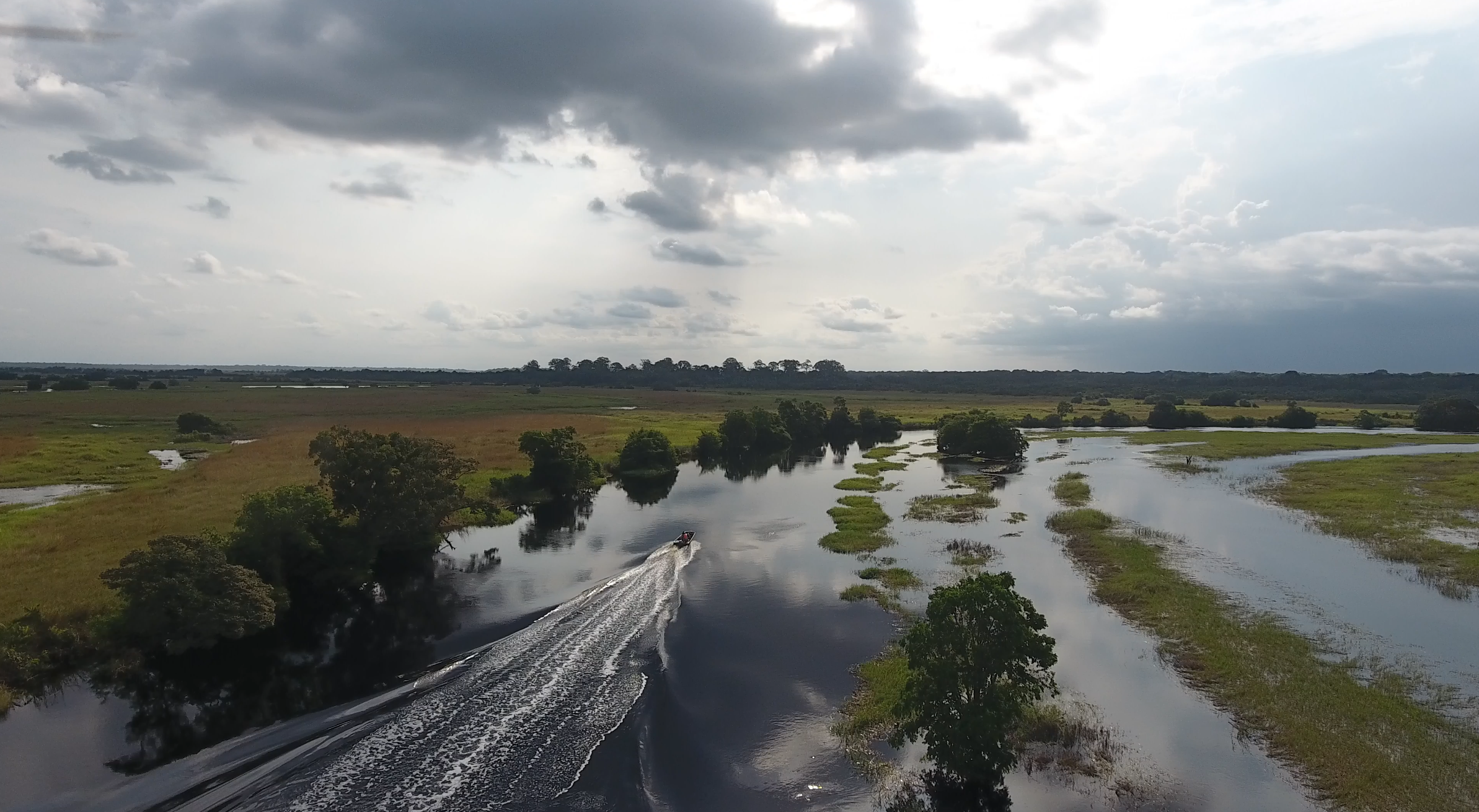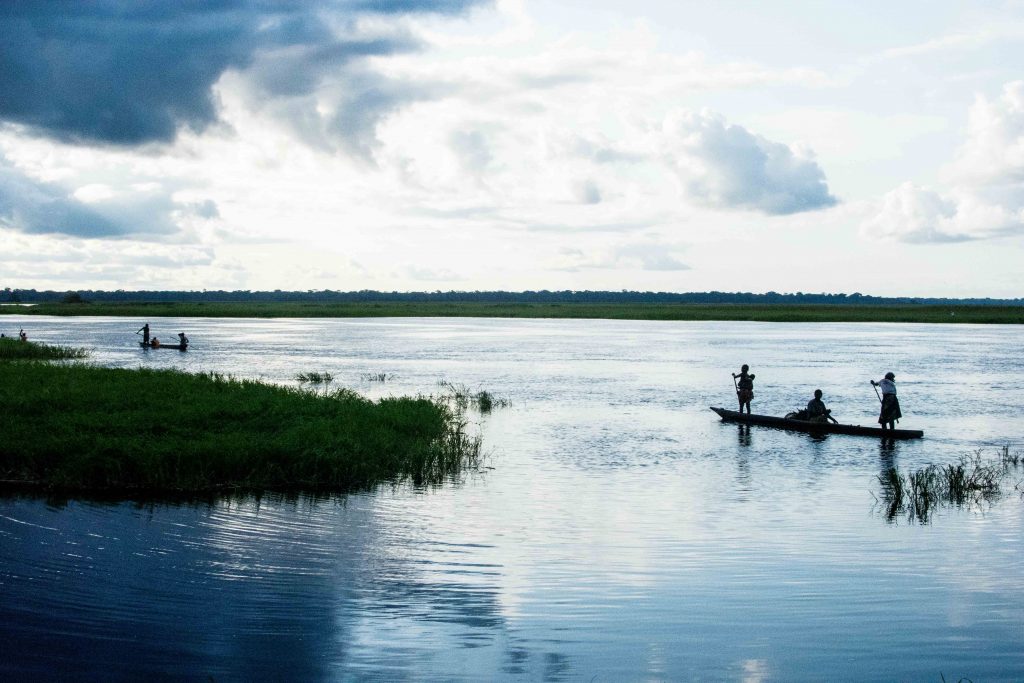
Sustainable fisheries moving forward in Lac Tele
Roger Mombongo is wet again. Returning from a month on a boat, ranging up and down winding rivers which slide in and out of thick rainforest, he’s used to it now – but he’s still looking forward to a night at home. During this trip, he visited thirteen villages in the south of Lac Tele Community Reserve, to work with families who rely on fish for both food and income.
Lac Télé Community Reserve is a 4,400km2 expanse of flooded forests, wetlands and savannahs deep in northern Republic of Congo’s vast forest wilderness. As one of Central Africa’s few community reserves, 17,000 people live within its outline.
”Wild places in the Congo basin suffer as increasing demand puts economic pressure on people to take more than the ecosystem can give. The potential impacts of this pressure, disappearance of wildlife species, is devastating not only for the wildlife itself, but also the people and families who rely on it.
Roger grew up in Epena village, inside Lac Télé Community Reserve, and for many years was a fisherman, paddling through Lac Tele’s sweeping grasslands, which, flooded for much of the year provided rich pickings for many families. Recently, though, these families complain that they find it hard to catch enough fish. Some species of fish, like the enormous tsuni catfish, can’t be found at all any more. As with many fishing grounds around the world, big cities and growing populations, like Kinshasa, the twelve-million strong capital of the neighbouring DRC, have been putting pressure on natural resources found in even the most remote parts of the world’s second largest rainforest.
Wild places in the Congo basin suffer as increasing demand puts economic pressure on people to take more than the ecosystem can give. The potential impacts of this pressure, disappearance of wildlife species, is devastating not only for the wildlife itself, but also the people and families who rely on it. To reverse these trends, WCS supports the men and women of Lac Télé to become stewards of their environment, to make Lac Télé one of Central Africa’s leading examples of how people can not only continue to live in wild places, but also play an active role in their survival.

Roger now works for the Wildlife Conservation Society, one of USAID’s partners, helping the Congolese government to support men and women who fish from Lac Tele’s wilderness. This year, he has worked with over 800 people up and down the reserve. He’s trained men and women how to build fish-smokers that preserve their fish for longer, meaning better prices in the market, and less rotting fish, a waste which increases fishing pressure. Recently, he’s supported groups of fishers to sign a ground-breaking agreement with the government, recognising their right to manage their fishing grounds and pledge assistance to their efforts. This, and other projects USAID supports in Lac Tele, are front-runners in recognising people as wild place’s most effective guardians.

